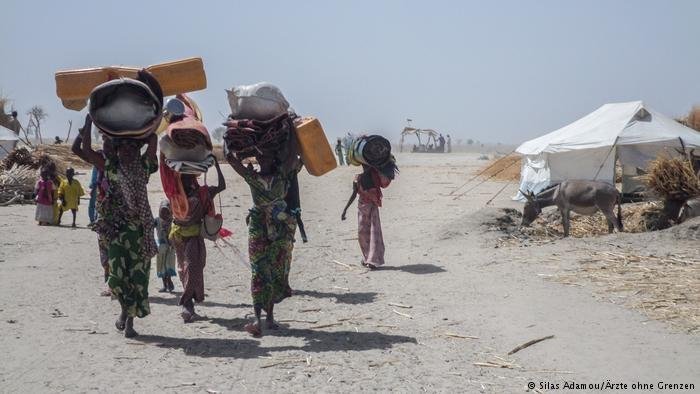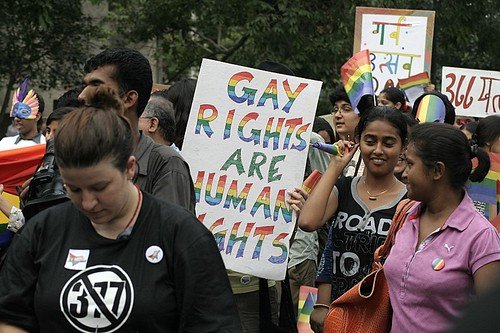
Our Blog
Categories
- Africa
- African Union
- Central Africa
- Citizenship laws
- Climate Change
- Competion Law
- Constitutional Court
- Constitutional Law
- Constitutional law
- Disability Rights
- Disability rights
- East Africa
- Environmental Law
- Gender Equality
- Governance
- Human Rights
- Human Rights Law
- ICJ Advisory Opinion
- Immigration Laws
- International Law
- Kenya
- Labour Law
- Mining Law
- Nigeria
- North Africa
- Political Rights
- Public International Law
- Public Law
- Right to Vote
- SADC Region
- Socio economic rights
- South Africa
- Southern Africa
- Uganda
- West Africa
- Year end anthology
- Zambia
How the Designation of Nigeria as a Country of Particular Concern May Affect Asylum Seekers and Refugees
in this post, Victor Obinna Chukwuma examines the recent designation of Nigeria as a “Country of Particular Concern” by President Trump, particularly how this label may shape the experiences of Nigerian asylum seekers and refugees. While much of the public debate has centered on diplomatic and political implications, the article shifts the focus to the vulnerable individuals whose safety and legal standing may hinge on how this designation is interpreted and applied across international protection systems.
Not Her Justice: When Custom Overrides Women’s Rights in Nigeria
In this post, Jonah Godswill Ekwere highlights the persistent tension between Nigerian customary laws and constitutional rights. He situates this discussion within the broader global struggle of reconciling entrenched cultural practices with modern legal frameworks. Ekwere emphasises the urgent need for stronger enforcement of existing statutes aimed at protecting women, particularly in relation to property rights, where discriminatory customs continue to undermine constitutional protections.
Ghana Declares that Bolt Drivers are Independent Contractors: Five Reasons Justice Noah Adade v Bolt Ghana Ltd Deserves a Different Verdict
In this article, Joshua Kyeremateng and Theophilus Edwin Coleman offer five reasons why the circuit court in Ghana should have arrived at a different conclusion on the employment status of gig workers in Justice Noah Adade v. Bolt Ghana Limited and Another.
The Supreme Court and Electoral Integrity: Challenges and Reflections from Nigeria
In this post, Ozioma Nwadike Esq. reflects on the state of the Nigerian electoral system in light of the anti-reform judicial stance exhibited by the Supreme Court. With reference to some of the Court's recent judgments, Nwadike argues that the progressive steps taken by the legislature to reform the system have been undermined by the Court through its reliance on arcane legal formalism. The implication is that little progress has been made in electoral system reforms since 2007.
The Legal Quandary of Parallel Party Primaries in Nigeria
Ozioma V. Nwadike discusses the dilemma of parallel party primaries in Nigeria and argues that conflicting winners undermine the electoral process’ legitimacy, leading to a lack of trust in the system and elected representatives.
Democratic Backsliding in Senegal: A Legal Analysis of the Postponement of Presidential Elections
This blog post sheds light on President Sall's controversial decision to indefinitely postpone Senegal's presidential elections. Initially slated for February 25, 2024, the elections have been enveloped in uncertainty and concern following this unexpected move.
Righting Wrongs: Ghana’s Supreme Court Declares a COVID19-Induced Law Unconstitutional
Earlier this year, Ghana's Supreme Court declared the Imposition of Restrictions Act (IRA) 2020 unconstitutional, merely three years after its enactment. This post takes a closer look at the IRA's prior controversies and highlights the key aspects of the Court's decision that substantiated earlier concerns, ultimately leading to the Act’s repeal.
‘All Eyes on The Judiciary’! Corruption Discourses, Judicial Transparency, and Nigeria’s Contested 2023 Presidential Election
In the the first of a two-part series, Ugochukwu Ezeh discusses judicial transparency, corruption and the integrity of democratic institutions against the backdrop of the contested presidential election in Nigeria.
Another Military Coup in Niger: What Next for the AU and ECOWAS?
In the wake of a recent military coup in Niger, both the AU and ECOWAS have strongly denounced this unconstitutional power shift. ECOWAS, taking a firmer stance, has also enforced sanctions on Niger. In this blog post, Linda Mushoriwa discusses the effectiveness of measures such as sanctions and military action in response to unconstitutional changes of governments (UCG).
A Win for LGBT Rights in Namibia
Same-sex unions are currently not performed in Namibia. However, last month, the Namibian Supreme Court held that the Namibian government should recognize same-sex marriages conducted outside Namibian jurisdiction. In this article, Mahima critically analyzes the judgment of the court in Digashu and Others v GRN and Others; Seiler-Lilles v GRN and Others, bringing to the fore human rights issues, and comparativism in judicial reasoning.
Nigeria: A Problematic Presidential Inauguration (Part II)
In the second of a two-part series focused on the contested presidential election in Nigeria, Ugochukwu Ezeh argues that the timeous judicial determination of electoral disputes is crucial to ensuring that leaders possess credible and legitimate democratic mandates.
Nigeria: A Problematic Presidential Inauguration (Part I)
In the first of a two-part series of blog posts focused on the contested presidential election in Nigeria, Ugochukwu Ezeh considers the existing electoral dispute resolution system and argues that it leaves much to be desired.
Les changements anticonstitutionnels de gouvernement: mode ou contre mode ?
Survenant par la force des armes ou à travers une subtile modification de la constitution, ne conservant qu’une apparence de légalité, ce phénomène est récurrent sur le continent noir et génère de lourdes menaces pour la démocratie et l'état de droit. La fréquence des changements inconstitutionnels ces dernières années nous amène à nous demander s’ils ne se sont pas érigés en une nouvelle mode d’ascension au pouvoir.
Created in the Image of God, Criminalised by the Laws of Ghana
Amidst heated debates over the criminalisation of homosexual relationships, Ghana’s parliament is considering passing a Bill entitled the Promotion of Proper Human Sexual Rights and Ghanaian Family Values of 2021 (“Anti-LGBTQ+ Bill”). The Bill, if passed into law, will usher Ghana into another wave of criminalising homosexual conduct.
Women’s Political Participation in The Gambia: Gender Quotas as Fast Track to Equality
A snapshot of women’s political participation in The Gambia shows that there is an urgent need to adopt special measures to increase women’s access to political participation.
- Africa
- BBI judgment
- Children's rights
- Climate Change
- Constitutional Court
- Constitutional Law
- Constitutional reform
- Democracy
- Election series
- Elections
- Environmental Justice
- Equality
- Human Rights
- International Law
- Kenya
- LGBTQ+ Rights
- Migration
- Namibia
- Nigeria
- Political Rights
- Public participation
- Refugee and migration series
- Refugees
- Socio-economic rights
- South Africa
- South African Constitution
- Women in Africa
- Women's Month
- Women's rights
- World Congress
Submissions
We welcome unsolicited submissions covering current legal developments in constitutional law, fundamental rights law, public law, international law and related fields.
















